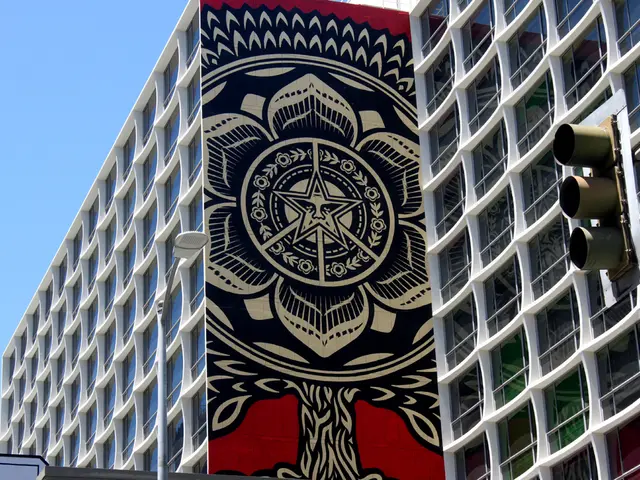Protests in Dunkirk: Left-wing leaders join demonstration against ArcelorMittal's job-cutting plan
Steelworkers Gather to Protest Job Cuts in Dunkirk
Scores of protesters descended upon Dunkirk, Nord on May 1st, led by the CGT, in response to ArcelorMittal's plan to axe approximately 600 jobs across their northern and eastern French sites, with the majority contingent in Dunkirk itself.
Left-wing leaders like Olivier Faure (Socialist Party, PS), Marine Tondelier (Ecologists), and Fabien Roussel (Communist Party) along with deputies from the ecologist group François Ruffin and Benjamin Lucas, graced the demonstration.
These politicians denounced ArcelorMittal's job cuts in a pre-released statement. They pointed out the incongruity of job losses, despite the steel giant's profitability, and its recent public aid. They also proposed a series of measures, including customs protection from Chinese steel imports, and temporary or permanent nationalization, though La France insoumise was not associated with this statement.
At the protest, ecologist deputy, Benjamin Lucas, declared ArcelorMittal's management would face parliamentary investigation within two to three weeks. They would be required to justify their massive layoffs, with no foreseeable economic rationale. Lucas also mentioned that dividends paid annually to ArcelorMittal shareholders total over 400 million euros, and hundreds of millions more in public money.
Moreover, the socialist deputies leader, Boris Vallaud, announced plans for a bill to put the Dunkirk ArcelorMittal site under state control. Vallaud and deputy Julien Gokel (PS) from the North criticized ArcelorMittal for reneging on promises and failing to honor commitments. They demanded the company maintain business and preserve employment, even at a loss, for a specified period. The bill would also call for investors or seek partial nationalization, as well as conditioning any new public aid on shares and double voting rights, ensuring state influence on strategic decisions.
In late 2024, ArcelorMittal postponed its 1.8 billion euro investment project for the decarbonization of its Dunkerque blast furnaces, citing the non-competitiveness of European steel production. The steelmaker announced a cost-cutting plan in recent weeks affecting 1,400 jobs, including around 600 jobs in northern France from both support functions and production.
While the EU steel sector grapples with a significant dip in demand and fierce competition from imports, implementing policy changes to prevent further job losses or consider nationalization remains unclear. No specific legislative actions or proposals by the French government have been reported yet.
However, government support for industries, regulatory measures, and sector revitalization plans are possibilities to help navigate the challenging market environment. Nationalization might be a last resort measure, albeit complex, with substantial legal, economic, and political considerations. This article will be updated as new information emerges.
Our website with AFP
SubscribeContribute
Reuse this content
- The demonstration in Dunkirk, led by the CGT, was supported by Left-wing leaders, including Olivier Faure, Marine Tondelier, and Fabien Roussel, who criticized ArcelorMittal's job cuts in a pre-released statement.
- Protesters denounced ArcelorMittal's plans to axe approximately 600 jobs across northern and eastern French sites, arguing that the job losses were incongruous with the steel giant's profitability and recent public aid.
- At the protest, politicians proposed measures such as customs protection from Chinese steel imports and temporary or permanent nationalization, though La France insoumise was not associated with this statement.
- Ecologist deputy, Benjamin Lucas, announced a parliamentary investigation into ArcelorMittal's management, requiring them to justify their massive layoffs with no foreseeable economic rationale.
- Boris Vallaud, the socialist deputies leader, announced plans for a bill to put the Dunkirk ArcelorMittal site under state control, demanding the company maintain business and preserve employment, even at a loss, for a specified period.
- ArcelorMittal postponed its 1.8 billion euro investment project for the decarbonization of its Dunkerque blast furnaces, citing the non-competitiveness of European steel production, and recently announced a cost-cutting plan affecting 1,400 jobs.
- Government support, regulatory measures, and sector revitalization plans could help the struggling EU steel industry navigate the challenging market environment, with nationalization potentially being a last resort measure.










